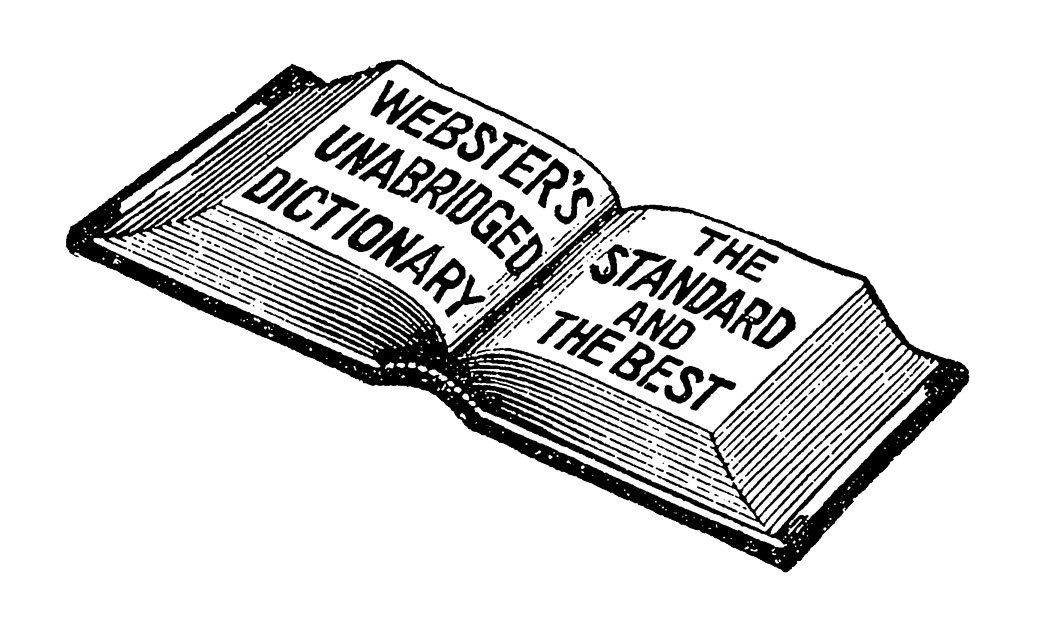

Old Words
As another year comes to a close, we nostalgically look back upon things that are remembered from the past.
There are many old words, from years and centuries past, that are no longer in our vernacular – but maybe we should bring them back. Here are a few old words that evoke interesting definitions:
Spuddle: An old English term (from the 17th century) that designated working ineffectively, or pretending to be busily engaged while doing nothing of worth. A similar word, fudgel, means the same thing. Perhaps our current verb to fudge (which means to mess up) is derived from this old word: Our manager continued to spuddle along, while the rest of us did the actual work.
Snollygoster: A noun that describes a deviously shrewd person. We all know someone like that. The word is also from the 17th century: Ebenezer Scrooge was a perfect snollygoster in business.
Codswallop: A noun that was prevalent in the last centuries denotes a dismissal of utterly foolish words or stories: The old story he told about escaping from a dungeon was complete codswallop.
Groke: An old Scottish verb that described someone (or an animal) that stares at someone else while they are eating, hoping to get some of the food. It is sometimes spelled groak, and was usually descriptive of dogs or children – and some adults from the old days: I can’t bear to watch the old dog groke during dinner.
Brabble: A verb from the 15th century that denotes arguing over trifles: The family’s constant brabble caused a strain on the otherwise happy celebration.
Humdurgeon: Another old Scottish noun for an imaginary illness. It is also sometimes called humdudgeon and also evokes loud complaining while supposedly under the weather: His wife’s renewed humdurgeon prevented them from accepting our invitation.
Apricity: From the Middle Ages, this old noun describes the pleasant emotion from feeling the sun on an otherwise cold day: With winter and so much darkness having arrived for a prolonged time, apricity is always appreciated.
Bedight: An old verb that means to decorate something plain in the hope of enhancing its appearance: Let’s bedight the old cabin for grandma’s birthday.
Billingsgate: A noun that describes cursing or otherwise coarse and abusive language: It is too much to endure our neighbor’s constant billingsgate with his irascible temper.
Mickle: An old noun (and sometimes adjective) that describes a crowd or event that is synonymous with huge or enormous: The recent storm was quite a mickle to endure. Or: The fossils in the museum are filled with mickle creatures from eras long past.
Elflocks: An old noun that denotes the state of hair in a tangled mess, or extremely frizzled: It took me an hour to detangle her elflocks.
Caliginous: An adjective that describes something (or someone) terrifyingly mysterious or spooky: The haunted house offered the usual caliginous delights for Halloween.
Nudiustertian: An archaic way of saying the day before yesterday. Our modern way isn’t much shorter.
Jargogle: A verb from days of long ago (the 17th century again) that denotes to confuse or mix something up in a jumble, usually in one’s head: With so much information at once, I am completely jargogled.
Piffle: An exclamation from the 19th century that is synonymous with saying something was absurd or nonsense: Oh, piffle! I refuse to believe such things. In the days when the majority of people had manners and refused to curse or swear, these are the types of words they said. There were a few others like this, such as Fiddle dee-dee (yes, they actually said that, not just a made-up oath uttered by Scarlett O’Hara). Thunder was another one. My grandmother used to say that a lot. Piffle was one of the more popular oaths back in the day.
Coeval: An old adjective describing people or events of the same age or date of origin: Did you know that the birthdates of Abraham Lincoln and Charles Darwin are coeval? Both were born on February 12, 1809.
Hiraeth: A noun that denotes a homesickness or yearning for something (or someone) who is gone forever: Going back to my hometown after so many years just evokes a hiraeth that I’d rather not experience.
It may be time for “out with the old and in with the new”, but sometimes the old stuff is quite interesting, and worth using.
Pass them along.


